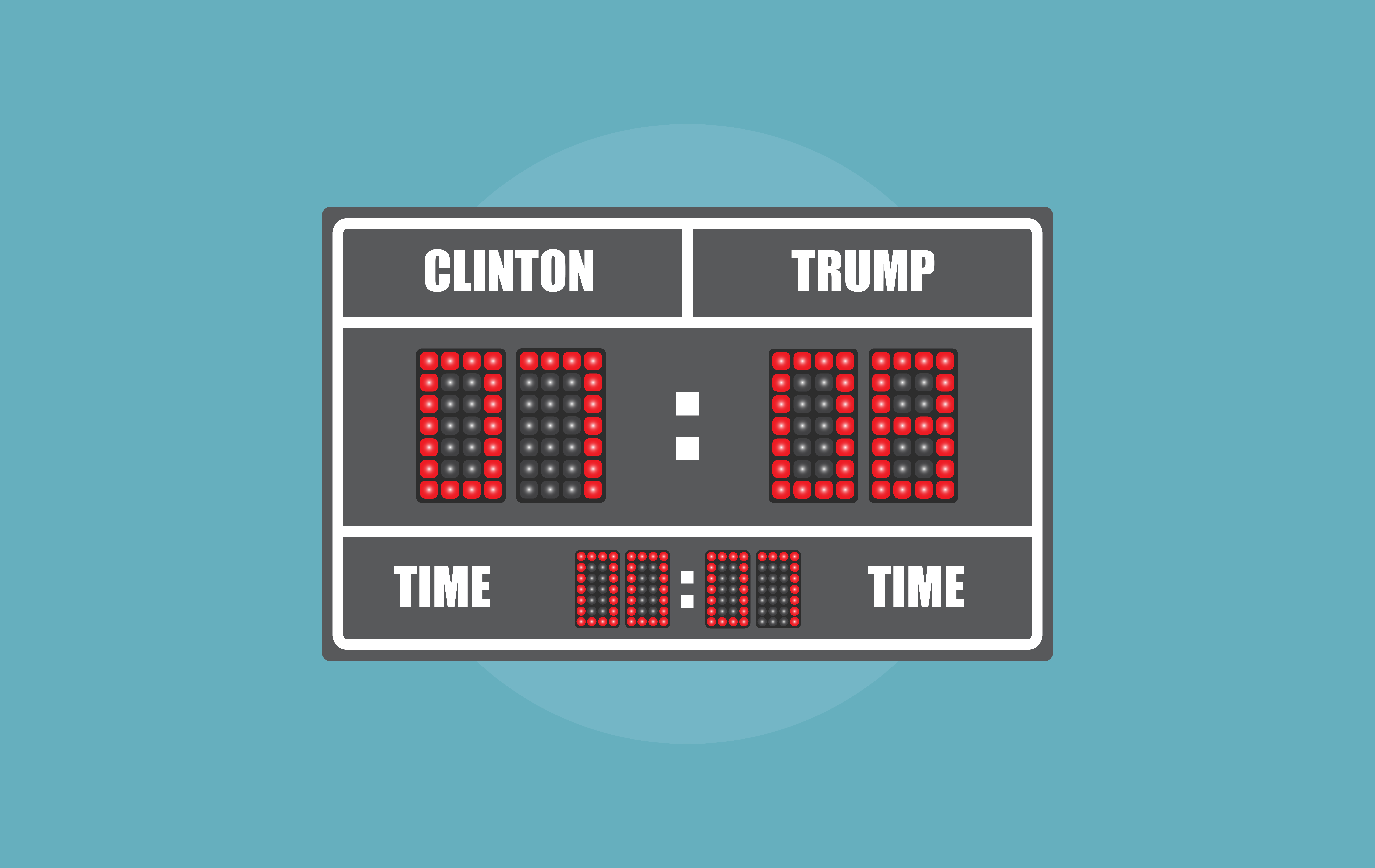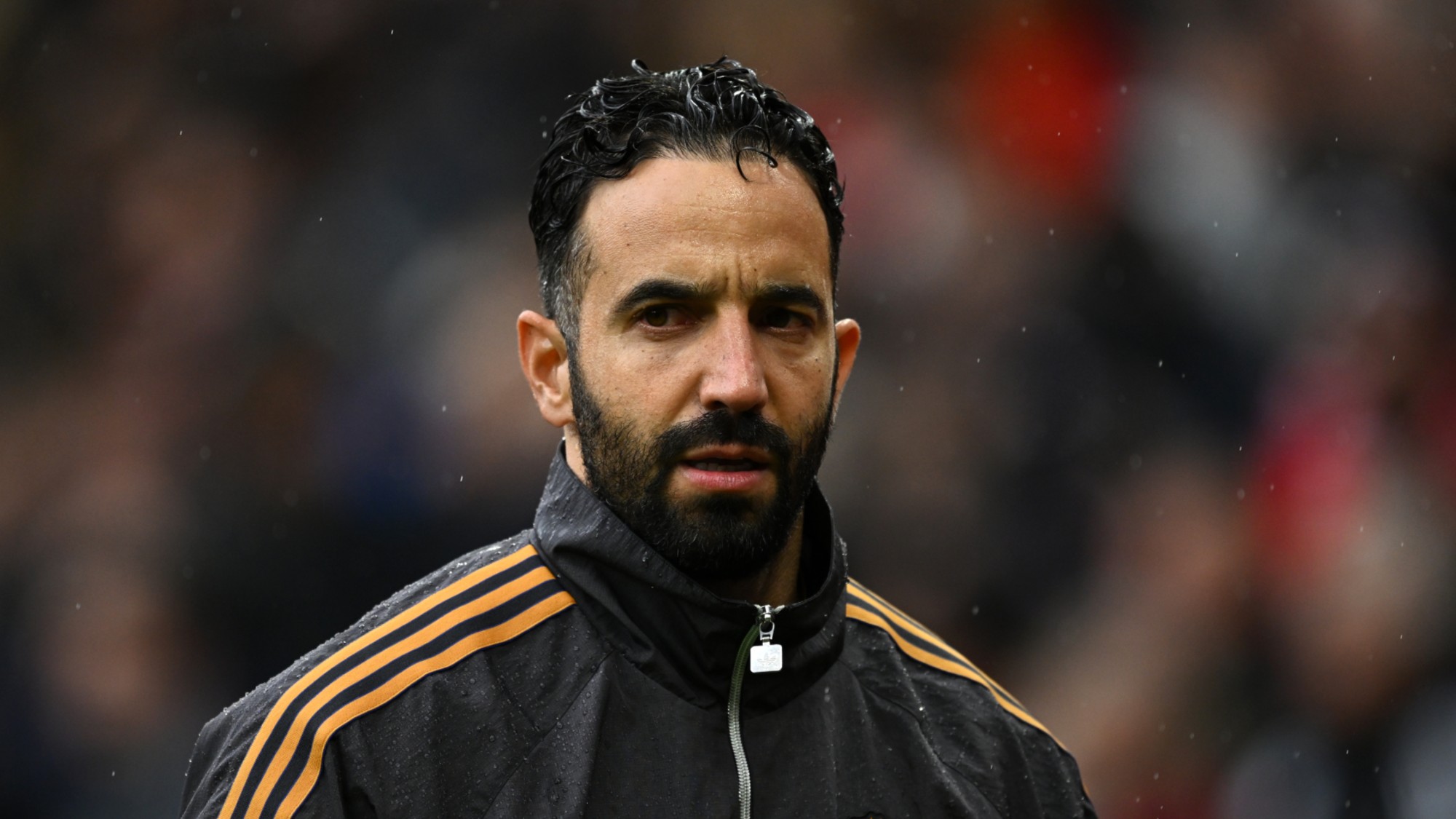Debate moderators aren't fact-checkers
They should really just stick to refereeing


Donald Trump has rebounded from a terrible August to pull back into a dead heat with Hillary Clinton. That's really astounding. Despite a 7-to-1 advantage in advertising, 24 years in Washington, and the Democratic Party establishment in her corner for years, Hillary Clinton might blow this election.
The polling deadlock has made the debates even more critical to both candidates. Given the lack of focus on actual policy — most efforts from both campaigns have focused on character and temperament issues — we can expect to see and hear a lot of personal attacks during the first debate on Sept. 26.
With the importance of the debates increasing, so has scrutiny of the process and the participants. For instance, the role of the Commission on Presidential Debates has come under fire for excluding Libertarian Party nominee Gary Johnson, who will appear on every ballot in this cycle, for failing to meet an arbitrary 15 percent polling threshold. Normally that would not raise the ire of voters, but in a cycle where the two major parties have produced broadly disliked and distrusted nominees, the CPD's refusal to expand the debates to those who might have more to say on policy seems less defensible on practical grounds than in previous cycles.
The Week
Escape your echo chamber. Get the facts behind the news, plus analysis from multiple perspectives.

Sign up for The Week's Free Newsletters
From our morning news briefing to a weekly Good News Newsletter, get the best of The Week delivered directly to your inbox.
From our morning news briefing to a weekly Good News Newsletter, get the best of The Week delivered directly to your inbox.
The expected lack of substance has put even more scrutiny on the role of the moderators, the first of whom will be NBC anchor Lester Holt. His media cohorts started sending messages about their expectations of aggressive moderation and fact-checking by lambasting Holt's NBC colleague Matt Lauer for his performance in a townhall forum earlier this month. Lauer failed to challenge Trump's claim to have opposed the Iraq War, an argument that began in the Republican primary debates and has percolated ever since. The forum's design, however, was to facilitate interaction between the candidates and the participants rather than act as a live-audience exclusive interview.
The presidential debates have a similar design issue when it comes to moderator intervention, but that's not likely to change many minds. The Atlantic's Ron Fournier has actively campaigned on Twitter for moderator fact-checking and challenges during the upcoming debates. Responding to Ari Fleischer's argument against moderator intervention, Fournier offered sports and television analogies in rebuttal. "Telling a journo to moderate debate but don't fact-check is like telling a boxer to climb in ring but don't fight," Fournier wrote. "Moderator is a journalist, not a game show host. Can't sit there and let Trump and Clinton lie without challenge."
Both analogies miss the mark. If the debates are boxing matches, then the candidates are the boxers, and the moderator is the referee. The referee's main function is to keep the candidates fighting each other without breaking the rules, not jabbing at the fighters himself. Game show hosts have a different role as scorekeepers, but debates aren't game shows, and moderators don't have all the answers either — as Fleischer pointed out in his argument. Former CNN host Candy Crowley derailed the second presidential debate between Mitt Romney and Barack Obama in 2012 by "fact checking" Romney's statement that Obama waited more than a week to call the Benghazi attack terrorism. It was immediately impossible to undo the damage the "moderator" did to the debate.
The argument for moderator score-keeping ignores the purpose of the debates. Moderators do not perform a journalistic role during the debate; their job is to facilitate the process, not comment or report on it in real time. They exist to put both candidates on stage at the same time to challenge each other, and to force them to respond to the same question at the same time. If one candidate tells a whopper, the other candidate has plenty of opportunity to challenge them on it. In fact, one measure of preparedness would be whether a candidate recognizes falsehoods or mistakes and can set the record straight.
A free daily email with the biggest news stories of the day – and the best features from TheWeek.com
What happens if they don't? Journalists, including the moderator, will have hours, days, and weeks to parse through the arguments and fact-check responses. Voters will only have a few scarce hours to see for themselves how candidates respond to the questions on policy and the challenges they launch at each other in real time. Moderators need to keep from getting in the way of that process.
Edward Morrissey has been writing about politics since 2003 in his blog, Captain's Quarters, and now writes for HotAir.com. His columns have appeared in the Washington Post, the New York Post, The New York Sun, the Washington Times, and other newspapers. Morrissey has a daily Internet talk show on politics and culture at Hot Air. Since 2004, Morrissey has had a weekend talk radio show in the Minneapolis/St. Paul area and often fills in as a guest on Salem Radio Network's nationally-syndicated shows. He lives in the Twin Cities area of Minnesota with his wife, son and daughter-in-law, and his two granddaughters. Morrissey's new book, GOING RED, will be published by Crown Forum on April 5, 2016.
-
 The rise of runcations
The rise of runcationsThe Week Recommends Lace up your running shoes and hit the trails on your next holiday
-
 Amorim follows Maresca out of Premier League after ‘awful’ season
Amorim follows Maresca out of Premier League after ‘awful’ seasonIn the Spotlight Manchester United head coach sacked after dismal results and outburst against leadership, echoing comments by Chelsea boss when he quit last week
-
 January’s books feature a revisioned classic, a homeschooler's memoir and a provocative thriller dramedy
January’s books feature a revisioned classic, a homeschooler's memoir and a provocative thriller dramedyThe Week Recommends This month’s new releases include ‘Call Me Ishmaelle’ by Xiaolu Guo, ‘Homeschooled: A Memoir’ by Stefan Merrill Block, ‘Anatomy of an Alibi’ by Ashley Elston and ‘Half His Age’ by Jennette McCurdy
-
 Bari Weiss’ ‘60 Minutes’ scandal is about more than one report
Bari Weiss’ ‘60 Minutes’ scandal is about more than one reportIN THE SPOTLIGHT By blocking an approved segment on a controversial prison holding US deportees in El Salvador, the editor-in-chief of CBS News has become the main story
-
 Has Zohran Mamdani shown the Democrats how to win again?
Has Zohran Mamdani shown the Democrats how to win again?Today’s Big Question New York City mayoral election touted as victory for left-wing populists but moderate centrist wins elsewhere present more complex path for Democratic Party
-
 Millions turn out for anti-Trump ‘No Kings’ rallies
Millions turn out for anti-Trump ‘No Kings’ ralliesSpeed Read An estimated 7 million people participated, 2 million more than at the first ‘No Kings’ protest in June
-
 Ghislaine Maxwell: angling for a Trump pardon
Ghislaine Maxwell: angling for a Trump pardonTalking Point Convicted sex trafficker's testimony could shed new light on president's links to Jeffrey Epstein
-
 The last words and final moments of 40 presidents
The last words and final moments of 40 presidentsThe Explainer Some are eloquent quotes worthy of the holders of the highest office in the nation, and others... aren't
-
 The JFK files: the truth at last?
The JFK files: the truth at last?In The Spotlight More than 64,000 previously classified documents relating the 1963 assassination of John F. Kennedy have been released by the Trump administration
-
 'Seriously, not literally': how should the world take Donald Trump?
'Seriously, not literally': how should the world take Donald Trump?Today's big question White House rhetoric and reality look likely to become increasingly blurred
-
 Will Trump's 'madman' strategy pay off?
Will Trump's 'madman' strategy pay off?Today's Big Question Incoming US president likes to seem unpredictable but, this time round, world leaders could be wise to his playbook
